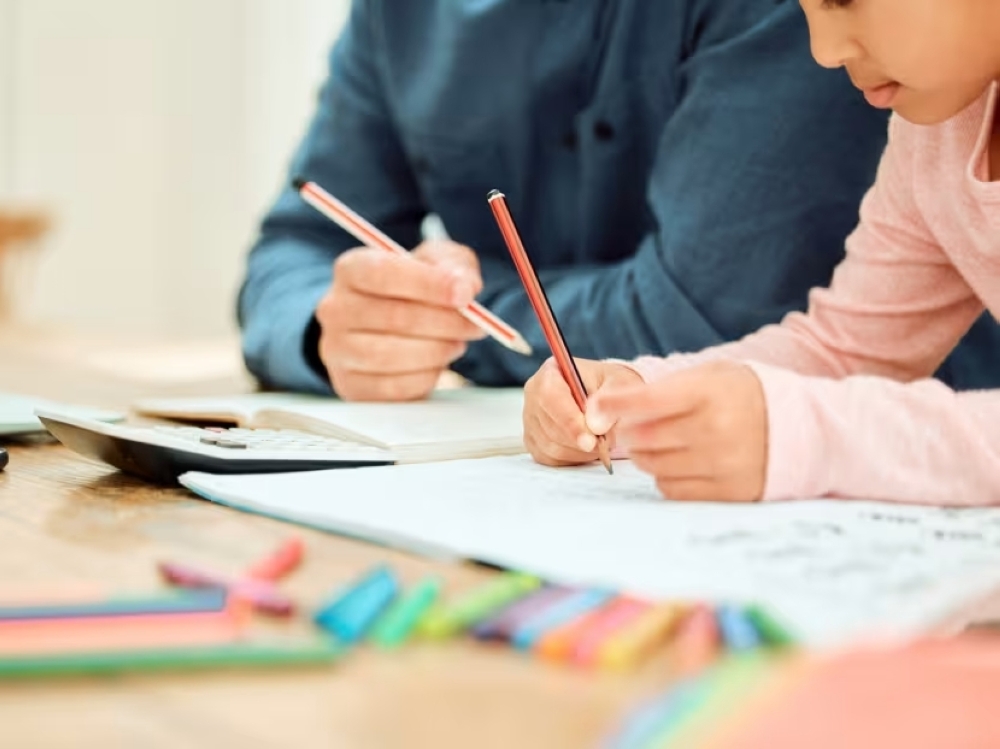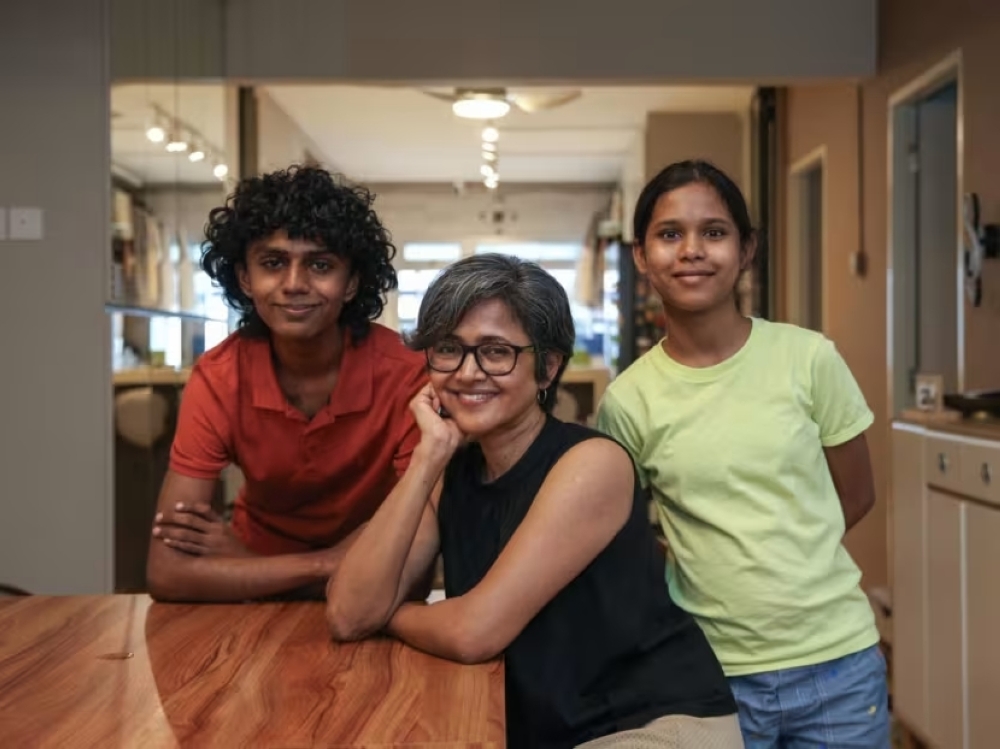SINGAPORE, June 1 — For a young Sukesy Mattar, studying at an international school in Kuwait, where she lived with her family till she was 11, provided her with a vibrant, holistic experience.
“We studied lots of different things, like handwriting and poetry. PE (physical education) wasn’t just PE, it was gymnastics. Music and drama were also all part of the curriculum. And I didn’t have to take any major exams, so the focus was never exams,” recalled the now 45-year-old mother of five.
Her father had relocated the family to the country for work purposes.
When she returned to Singapore, Mattar’s transition back to the local education system where she was placed in Primary 6, was jarring.
The curriculum, centred on the four academic subjects of English, maths, science and mother tongue and with a relentless focus on examinations, felt suffocating for her. Art and creative subjects were sidelined, and even PE was rigorously tested.
For Mattar, the educational environment here was in stark contrast to her experience overseas.
When her oldest son completed his first year of kindergarten in 2007, Mattar, who worked as a private tutor and continues to teach home-school children math and science today, began to reflect on her own experience in the mainstream school system.
She found herself unsatisfied with the available schooling options for her son, including international schools, which were too costly.
Eventually, she took a leap of faith and home-schooled her son until he was 16.
Finding that she enjoyed the lifestyle that home-schooling afforded both her son and herself, Mattar continued to home-school her second and third children until they were 16.
Mattar is part of a small group of parents in Singapore who choose to home-school their children.
Why it matters
Globally, home-schooling is growing in popularity in countries such as the United States, the United Kingdom and Australia.
However, this alternative schooling approach is less well-known in Singapore.
Associate Professor Jason Tan from the National Institute of Education (NIE) noted that the home-school community is “rather scattered” as there is no umbrella body to which all home-schooling families belong.
The Ministry of Education (MOE) said in response to TODAY’s queries that since the Compulsory Education Act came into effect in 2003, the number of home-schooled children has “remained small and generally constant, at an average of about 50 Singaporean children for each primary age cohort every year”.
The Act makes it mandatory for all Singaporean children residing in the country, who are above six years old and under 15, to attend a national primary school unless an exemption is granted.
MOE does not track the number of Singaporean children who are home-schooled at the secondary level and higher as they do not come under the Act’s purview.
But the ministry said that this number is likely to be fewer than that for primary school for each cohort, as many home-schooled children do eventually enrol in mainstream primary schools or secondary schools.
Each home-schooling application is reviewed on a case-by-case basis by MOE to ensure that the children’s educational development is safeguarded.
The ministry does not provide a recommended curriculum for parents who wish to home-school their children.
Parents who home-school and education experts say that this educational pathway is not without challenges and is not for everyone.
For one thing, as each child has unique learning needs and paces, parents must also adapt by juggling multiple curricula and learning styles simultaneously.
Some may also struggle with finding opportunities for their children to learn more advanced subjects as they get older and the material becomes more difficult.
To tackle these challenges, some home-schooling families would form a learning co-operative and share resources, with parents with expertise in specific subjects taking turns to teach a group of children.
These co-ops typically consist of five to eight families who meet regularly each week for lessons.
In terms of socialisation, parents also shared that many people have the misconception that home-schooled children are under-socialised.

The big picture
Singapore’s education system is highly regarded internationally.
Singaporean students ranked first in mathematics, science and reading in the 2022 Programme for International Student Assessment (Pisa) among 38 Organisation for Economic Co-operation and Development countries, while Primary 4 students achieved the highest global reading proficiency in the 2021 Progress in International Reading Literacy Study (Pirls).
Still, some parents opt not to enrol their children in mainstream schools for a variety of reasons.
Most tell TODAY that they want to provide a more personalised and flexible education, without the stress and rigidity often associated with conventional schooling.
For Tang, who has a six-year-old son and three-year-old daughter and is currently pursuing a doctorate degree in medicine, the idea of home-schooling came up when she found her son to be a highly-gifted child at the age of four.
Tang, 33, who declined to give her full name for privacy reasons, said her son was tackling math workbooks designed for Primary 3 students by the time he was three and subsequent tests revealed his IQ to be an impressive 154 — the average IQ of a normal individual is about 100.
“Part of being gifted is the asynchrony of development. He may be more developed in the cognitive sense, but another part of it may not be as critically developed, which is up to us as the parent to observe and give this one-to-one attention,” she said.
“With home-schooling, I can make it more child-led. So we can actually cater for the child to accelerate his pace of learning.”
Parents are also drawn to providing their children with a holistic and creative education beyond mere academic excellence.
For Anju Tupili, 50, the former architect’s desire to provide such an experience for her children led her to home-school them using the Classical Conversations syllabus. This curriculum emphasises learning through memory work and includes philosophical works by Socrates and Plato, as well as Latin language and history, among other subjects.
“A child must be given the opportunity to know the world and learning the way of life of these ancient people enriches a (child) and I think they become better citizens,” the mother of three said.
Lenora Lin, 44, is a part-time coach at Forest School Singapore who home-schools her eight-year-old daughter Liv using the unschooling method, a child-led approach that encourages learning through natural life experiences.
Entrepreneurship fairs organised by the home-schooling community teach her daughter business skills, financial literacy, and adaptability.
“It’s about handing her the reins and letting her learn practical skills on her own initiative,” said Lin, who holds a degree in drama and theatre.

The bottomline
While home-schooling appeals to some families, it requires significant commitment from parents, who must be able to dedicate time, resources, and a deep understanding of their child’s educational and developmental requirements.
Dr Ho Boon Tiong, principal consultant educationist from training and consulting firm ClassPoint Consulting, advised parents to consider their preparedness, commitment level and knowledge of subjects before making such a major decision.
“It’s a big investment because it is about individualisation of education, so you have to do everything on your own. And it’s not just about financial commitment, it’s also time. At some point, you may have to reintegrate back into the mainstream system,” he said.
Given the strenuous demands of home-schooling, not all parents may be able to cope with it, Assoc Prof Tan from NIE said.
“First of all, home-schooling definitely demands that parents commit themselves fully to the task of educating their children outside of school. They have to be able to undertake that heavy responsibility not just in the short term, but for a sustained period of time.”
Assoc Prof Tan also urged parents to consider the affordability of home-schooling as families also need a certain level of financial security to be able to undertake this pathway.
He added that children in the same family may also respond differently to home-schooling methods due to individual differences.
Ultimately, experts agreed that home-schooling is a niche pathway, and it is up to parents to educate themselves on the pedagogical approach they wish to adopt. Parents must also learn how to track and assess their children’s progress to ensure they meet academic standards.
Tang, the mother of two who are both schooled at home, also has this advice based on her experience: Don’t turn home-schooling into a competition and remember to prioritise the children’s needs.
“It doesn’t mean that if somebody is using a particular learning style, I must also do the same thing. Don’t put your child into a mould. It’s fine to be flexible and express yourself,” she said. — TODAY






















